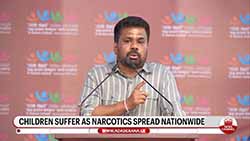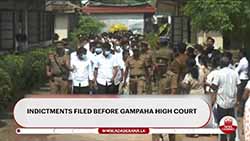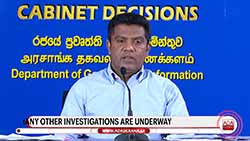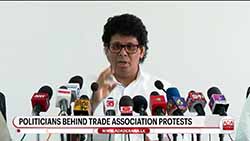SL peace process would have benefitted from greater iternational effort: Solheim
January 16, 2016 01:11 pm
A broader international commitment would have ensured the success of an effort to end an over two-decade-long war between the Sri Lankan military and Tamil separatists, Erik Solheim, a former peace negotiator, said at the Atlantic Council.
In the absence of such a commitment, the Sri Lankan military continued a fierce offensive against the Liberation Tigers of Tamil Eelam (LTTE) fighters as ceasefire agreements between the warring sides collapsed. In May of 2009, the government announced that it had defeated the separatists, bringing the curtain down on a 26-year war. More than 100,000 people are believed to have lost their lives, at least 40,000 of them in the war’s final days.
India, Japan, and Norway offered diplomatic and logistical support during the effort to broker peace between the Sri Lankan government and the LTTE. But, Solheim said, “a broader and stronger coalition of outside international players was needed.”
Solheim, a Norwegian politician and former chief negotiator in the Sri Lankan peace process, participated in a panel discussion hosted by the Atlantic Council’s South Asia Center, the Atlantic Council said in a statement. Richard L. Armitage, who has served as Deputy Secretary of State in the George W. Bush administration; and Mark Salter, author of To End a Civil War, which recounts the mediation efforts in Sri Lanka, were also part of the panel. Bharath Gopalaswamy, Director of the Atlantic Council’s South Asia Center moderated the discussion.
Until its full disbandment in 2009, the LTTE was a highly effective militant organization that specialized in using terror tactics to execute its secessionist operations against the Sri Lankan government. Solheim led a team of negotiators in 2002 to oversee ceasefire talks that broke down in 2006.
Solheim identified specific challenges surrounding the diplomatic mission—namely, the dearth of information his team had on dealing with senior officials in both the Sri Lankan government and the LTTE. “We needed a bigger team to tap into Tamil-Sinhala relationships and more importantly, we needed to gain insight into the unique leadership of the Tamil Tigers,” he said. “At the end of the day it was about this.”
A broader coalition of international players would have also helped this effort, he added.












